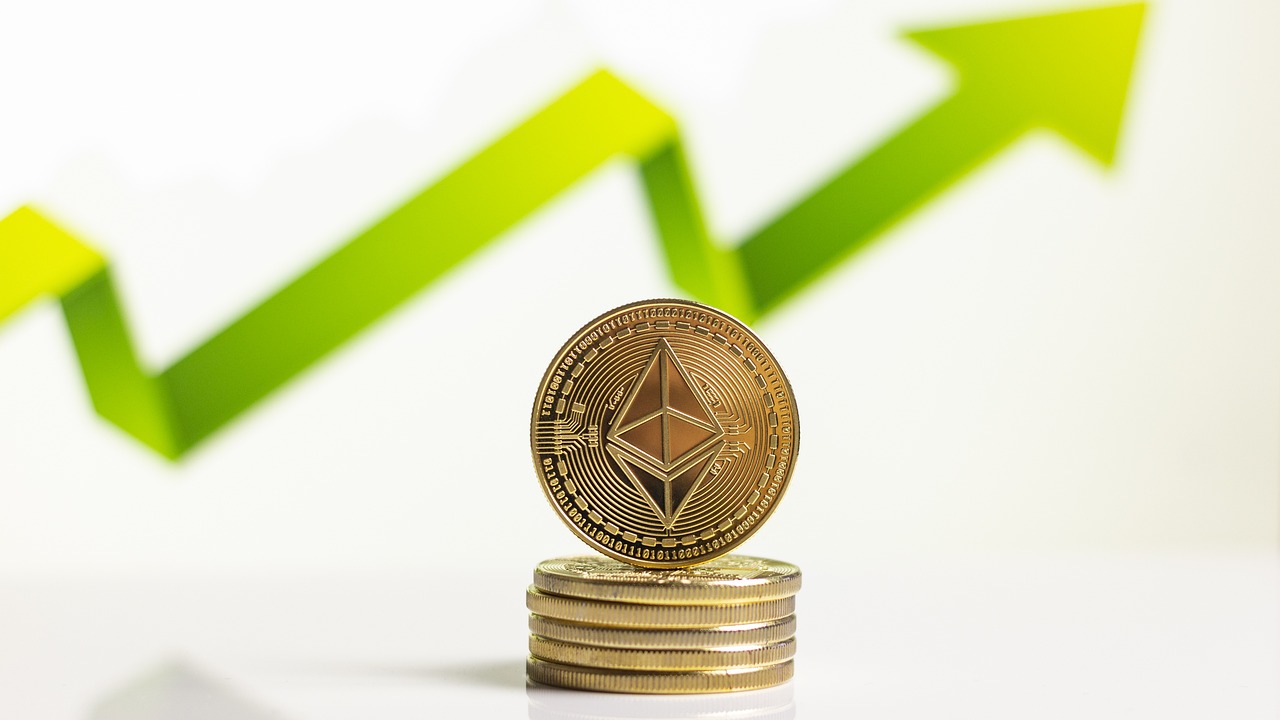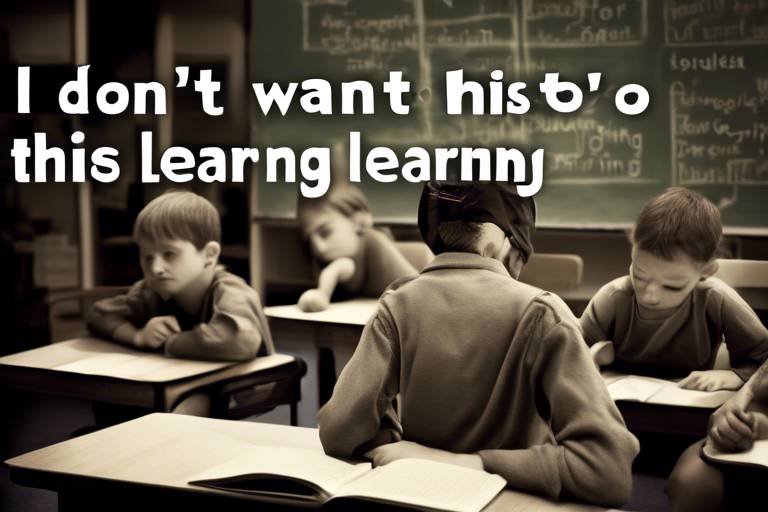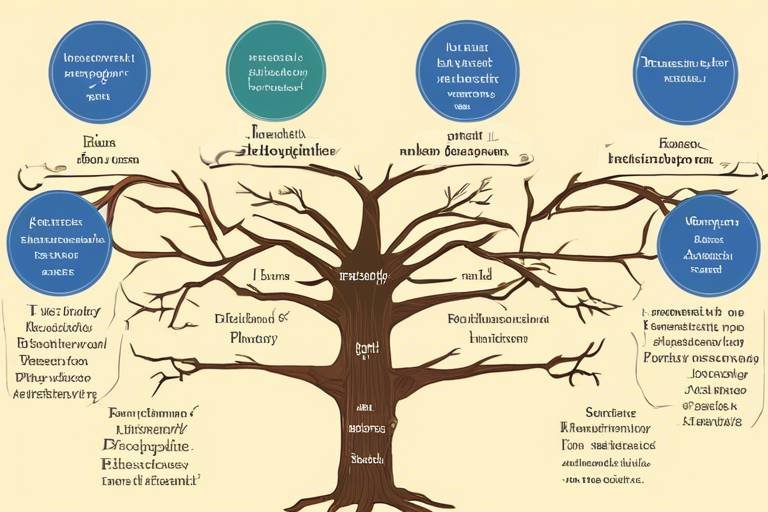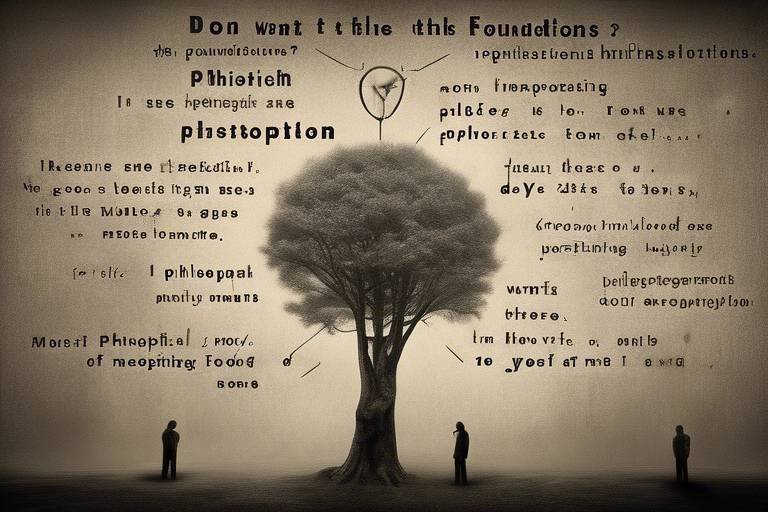Philosophy and Money - Bridging the Gap
In a world where the clinking of coins and the digital beep of transactions often drown out deeper conversations, the relationship between philosophy and money becomes increasingly vital to explore. At first glance, they may seem like two separate realms—one rooted in abstract thought and the other in tangible wealth. However, when we dig deeper, we uncover a rich tapestry where these two domains intertwine, influencing our values, choices, and societal structures. So, how does philosophy shape our understanding of money, and how does our financial behavior reflect our philosophical beliefs? This article seeks to unravel these complexities, shedding light on the ethical implications of wealth and the philosophical underpinnings of our economic systems.
As we embark on this journey, we will examine the ethical dimensions of wealth, exploring questions about distribution, responsibility, and the broader impact of financial decisions on communities. Wealth is not merely a number in a bank account; it carries with it a weight of responsibility and moral considerations. For instance, consider the age-old question: "Is it fair for one individual to accumulate vast riches while others struggle to meet their basic needs?" This inquiry leads us into the heart of philosophical debates about justice and equity in society.
Furthermore, we will delve into various philosophical perspectives on capitalism, revealing how different schools of thought interpret economic systems and their implications for justice and equality. For example, utilitarianism, with its focus on maximizing happiness for the greatest number, presents a compelling yet controversial framework for economic decision-making. But what happens when the pursuit of collective happiness clashes with individual rights? This tension is a core theme we will explore, providing a nuanced understanding of how philosophical principles can influence financial choices.
Moreover, we cannot overlook the role of money in shaping human experience. Money is more than just a medium of exchange; it influences our social relationships, personal identity, and even our self-worth. As we navigate this complex landscape, we will investigate the idea that money is a social construct, shaped by cultural perceptions of value. This perspective invites us to question the very nature of wealth and its significance in our lives.
In conclusion, the interplay between philosophy and money is not just an academic exercise; it is a reflection of our values and the choices we make every day. By understanding the philosophical dimensions of wealth, we can better navigate our financial decisions, ensuring they align with our ethical beliefs and contribute positively to society. So, as we continue this exploration, let’s keep in mind that the way we think about money can profoundly impact our lives and the world around us.
- How does philosophy influence financial decisions? Philosophy provides a framework for understanding ethical considerations surrounding wealth, helping individuals make more informed choices.
- What are the ethical implications of wealth accumulation? Wealth accumulation raises questions about fairness, responsibility, and the impact on society, prompting discussions about justice and equity.
- Can money buy happiness? While money can enhance comfort and security, true happiness often stems from relationships and personal fulfillment rather than material wealth.
- How do different philosophical schools view capitalism? Perspectives vary, with some supporting free markets for promoting individual freedoms, while others critique capitalism for fostering inequality.

The Ethical Dimensions of Wealth
Wealth is often seen as a symbol of success, but it carries with it a host of ethical questions that can challenge our understanding of fairness and responsibility. When we think about wealth, it’s not just about the numbers in our bank accounts; it’s about how those numbers affect our lives and the lives of others. The way wealth is distributed raises significant questions: Who deserves what? Is it fair for one person to accumulate vast resources while others struggle to make ends meet? These inquiries are at the heart of the ethical dimensions of wealth.
One of the primary ethical concerns surrounding wealth is its distribution. In many societies, wealth is concentrated in the hands of a few, leading to stark inequalities that can create tension and resentment. The question arises: What is the moral responsibility of the wealthy? Should they be obligated to share their resources with those less fortunate? This is not just a matter of charity; it’s about the very fabric of social justice. Wealth can be a powerful tool for change, but it can also perpetuate cycles of poverty and disenfranchisement if not handled with care.
Moreover, the accumulation of wealth often leads to a sense of entitlement. Those who possess significant financial resources may feel a disconnect from the struggles faced by those in lower socioeconomic strata. This can foster a culture where the wealthy are less inclined to empathize with the challenges of others, leading to policies and practices that further entrench inequality. The ethical implications of wealth are thus intertwined with our social values and the systems we create to govern economic interactions.
In addition to distribution, the responsibility that comes with wealth is another critical aspect to consider. Wealthy individuals and corporations wield significant influence over political and social landscapes. This power can be used for good—funding education, healthcare, and community initiatives—or it can be exploited for personal gain at the expense of the greater good. The ethical dilemma lies in balancing personal interests with the needs of society. Are we using our wealth to uplift others, or are we hoarding it for ourselves?
Furthermore, the impact of wealth on societal structures cannot be overlooked. Wealth shapes opportunities and access to resources. Those with financial means can afford better education, healthcare, and housing, creating a cycle where the rich get richer while the poor remain marginalized. This raises another ethical question: How do we ensure that everyone has a fair chance at success? The answer may lie in policies that promote equitable access to resources and opportunities, but these solutions often face opposition from those who benefit from the status quo.
Ultimately, the ethical dimensions of wealth challenge us to reflect on our values and the kind of society we want to build. It calls for a deeper understanding of our roles as individuals within a larger community. As we navigate these complex issues, it’s essential to recognize that wealth is not just a personal asset; it’s a societal one, with the power to either uplift or undermine the very foundations of our communities.
- What are the ethical implications of wealth distribution? Wealth distribution raises questions about fairness, social justice, and the moral responsibilities of the wealthy.
- How can wealthy individuals contribute to society? Wealthy individuals can contribute by supporting charitable initiatives, investing in community development, and advocating for policies that promote equity.
- What role does government play in wealth distribution? Governments can enact policies to redistribute wealth through taxation, social programs, and regulations that promote equal opportunities.
- Can wealth be a force for good? Yes, when used responsibly, wealth can fund initiatives that improve education, healthcare, and social welfare, benefiting society as a whole.

Philosophical Perspectives on Capitalism
Capitalism is not just an economic system; it’s a complex web of ideas, beliefs, and values that shape how we interact with money and each other. Different philosophical schools provide unique lenses through which we can examine capitalism, and these perspectives significantly influence our understanding of justice, equality, and the role of government in economic life. For instance, while some might argue that capitalism fosters innovation and individual freedom, others contend that it perpetuates inequality and exploitation. So, how do we navigate this intricate landscape?
At its core, capitalism is often associated with the idea of free markets and private property. But what does this really mean for society? The philosophy of capitalism can be broken down into several key schools of thought:
- Libertarianism: Advocates for minimal government intervention, emphasizing individual rights and personal responsibility. Libertarians argue that free markets lead to the most efficient allocation of resources.
- Keynesianism: Suggests that government intervention is necessary to manage economic cycles. Keynesians believe that during times of economic downturn, state spending can stimulate demand and promote recovery.
- Socialism: Critiques capitalism by arguing that it leads to exploitation and economic disparity. Socialists advocate for collective ownership and equitable distribution of resources.
These perspectives not only shape economic policies but also influence the ethical implications of wealth accumulation. For example, a libertarian might argue that the wealth generated in a free market is a reflection of individual merit and hard work. In contrast, a socialist might see the same wealth as a product of systemic inequalities that favor the rich at the expense of the poor.
Furthermore, the philosophical debate extends to the concept of justice. What does it mean to be just in a capitalist society? Is it fair for one individual to amass vast wealth while others struggle to make ends meet? This question leads us to consider the role of economic justice and how different philosophical frameworks approach this issue. For instance, John Rawls, a prominent philosopher, proposed the idea of the veil of ignorance, encouraging us to design a society without knowing our own social standing. This thought experiment challenges us to consider fairness in wealth distribution.
In the end, the philosophical perspectives on capitalism serve as a mirror reflecting our values and beliefs about wealth and society. They compel us to ask tough questions about the kind of world we want to create. Do we prioritize individual success at all costs, or do we seek a system that uplifts everyone? The answers to these questions are not just academic; they have real-world implications that affect policies, communities, and individual lives.
As we delve deeper into the ethical dimensions of wealth and the role of money in human experience, it’s essential to remember that our philosophical beliefs about capitalism shape not only our economic decisions but also our moral compass. The interplay between philosophy and money is intricate, and understanding it can help us navigate the complexities of modern life.

Utilitarianism and Economic Decisions
Utilitarianism, a philosophical principle popularized by thinkers like Jeremy Bentham and John Stuart Mill, posits that the best action is the one that maximizes overall happiness or utility. When we apply this concept to economic decisions, it becomes a fascinating lens through which to view our financial choices. Imagine standing at a crossroads, where each path represents a different economic decision. The utilitarian approach encourages us to consider not just our own benefit, but the impact of our choices on the wider community. This is where the rubber meets the road—how do we balance personal gain with the greater good?
In practical terms, utilitarianism suggests that policies and economic decisions should aim to produce the greatest good for the greatest number. For instance, when a government decides to allocate funds for public services, a utilitarian framework would advocate for investments that yield the highest benefit to the majority of citizens. This could mean prioritizing healthcare, education, or infrastructure, as these areas typically enhance the quality of life for many. However, this approach is not without its challenges. What happens when the happiness of the majority comes at the expense of a minority? This ethical dilemma often leads to intense debates about fairness and justice in economic systems.
Moreover, utilitarianism can create potential conflicts in decision-making. Consider a business that must decide between raising wages for its employees or lowering prices for its customers. If the company chooses to increase wages, it may lead to happier employees, but could also result in higher prices for consumers, thus reducing overall happiness. Conversely, lowering prices may benefit customers but could lead to employee dissatisfaction. The key question here is: how do we measure happiness? Is it through financial wealth, job satisfaction, or perhaps even social equity? These questions are not easily answered and highlight the complexities of applying utilitarianism to economic decisions.
To illustrate this further, let’s look at a simple utilitarian decision-making framework:
| Decision | Potential Outcomes | Overall Happiness Impact |
|---|---|---|
| Increase Employee Wages | Happier employees, higher product prices | Positive for employees, negative for some consumers |
| Lower Product Prices | More accessible products, potential layoffs | Positive for consumers, negative for employees |
This table exemplifies how utilitarianism can guide economic decisions while also revealing the inherent trade-offs involved. Ultimately, the challenge lies in navigating these complex waters—striving for decisions that enhance collective happiness without sacrificing individual rights. It's a tightrope walk, balancing the scales of happiness across different groups.
In conclusion, while utilitarianism offers a valuable framework for making economic decisions, it also raises significant ethical questions. As we navigate the intricate relationship between wealth and happiness, we must remain vigilant about the implications of our choices. After all, the quest for the greatest good is a noble one, but it requires a careful examination of the impact on all individuals involved. So, as you ponder your next financial decision, remember to ask yourself: Who benefits, and at what cost?
- What is utilitarianism? Utilitarianism is a philosophical theory that suggests actions are right if they promote happiness and wrong if they produce the opposite of happiness.
- How does utilitarianism apply to economic decisions? It encourages decision-makers to consider the overall happiness generated by their choices, weighing the benefits and drawbacks for all stakeholders involved.
- What are some criticisms of utilitarianism in economics? Critics argue that it can lead to the neglect of minority rights and that happiness is subjective and difficult to measure accurately.
- Can utilitarianism coexist with capitalism? Yes, but it requires a careful balance to ensure that the pursuit of profit does not come at the expense of social welfare.

Maximizing Happiness through Wealth
When we think about wealth, the first thing that often comes to mind is the ability to buy things—luxurious cars, extravagant vacations, or perhaps a beautiful home. However, the true essence of wealth goes beyond mere material possessions; it lies in the potential to enhance our overall happiness and well-being. Imagine wealth as a tool, much like a paintbrush in the hands of an artist. Just as an artist can create a masterpiece, we can use our financial resources to paint a life rich in experiences, relationships, and opportunities.
Research has shown that money can indeed buy happiness, but only to a certain extent. Once our basic needs are met—food, shelter, and security—additional wealth tends to have diminishing returns on our happiness. This brings us to an interesting question: how can we utilize our wealth to maximize happiness not only for ourselves but also for those around us? The answer lies in the way we choose to spend our money. Investing in experiences rather than possessions can lead to greater satisfaction. For instance, spending money on travel can create lasting memories and foster connections with loved ones. In contrast, purchasing a new gadget may provide a fleeting sense of joy, but it often fades quickly.
Furthermore, philanthropy plays a significant role in this equation. When we share our wealth with others, whether through charitable donations or supporting local businesses, we contribute to the happiness of our communities. This act of giving not only uplifts others but also enriches our own lives. Studies have shown that individuals who engage in altruistic behavior report higher levels of happiness and life satisfaction. It's as if the act of giving creates a ripple effect, enhancing our sense of purpose and connection to the world around us.
It's essential to recognize that happiness derived from wealth is not solely about financial gain. Instead, it encompasses the relationships we build and the impact we have on others. Here are some ways to maximize happiness through wealth:
- Invest in relationships: Use your financial resources to create memorable experiences with family and friends.
- Support causes you care about: Donate to charities or organizations that resonate with your values.
- Pursue personal growth: Spend on education or self-improvement activities that enrich your life.
Ultimately, the challenge lies in finding a balance between personal gain and societal benefit. It's about recognizing that our financial decisions can create a broader impact, shaping not just our own happiness but also the happiness of others. Wealth can be a powerful catalyst for positive change, transforming lives and communities. So, the next time you find yourself contemplating a financial decision, ask yourself: how can this choice contribute to not only my happiness but also the happiness of those around me?
- Can money really buy happiness? While money can enhance happiness to a degree, especially when it meets basic needs, true happiness often comes from experiences and relationships rather than material possessions.
- How can I use my wealth to help others? Consider donating to charities, supporting local businesses, or investing in community projects that align with your values.
- Is there a limit to how much wealth can contribute to happiness? Yes, studies suggest that after a certain point—typically when basic needs are met—additional wealth has diminishing returns on happiness.

Critiques of Utilitarian Economics
Utilitarian economics, while appealing in its simplicity and focus on the collective good, faces significant critiques that challenge its foundational principles. At its core, utilitarianism advocates for actions that maximize overall happiness; however, the question arises: whose happiness is being prioritized? Critics argue that this approach can lead to the marginalization of minority interests, as the pursuit of the greatest good for the greatest number may inadvertently justify harmful actions against individuals or smaller groups. For instance, if a policy benefits 90% of the population but severely impacts the remaining 10%, how ethical is that decision?
Moreover, the utilitarian framework often struggles with the complexity of human emotions and values. Happiness is subjective, and what brings joy to one person may cause distress to another. This leads to an oversimplification of human experience, reducing it to mere calculations of pleasure and pain. Critics assert that such a reductionist view fails to account for deeper moral considerations, such as justice, rights, and dignity. In many cases, the focus on aggregate happiness can overshadow the importance of individual rights, leading to ethical dilemmas where people's freedoms are sacrificed for the supposed greater good.
Another point of contention is the challenge of measuring happiness or utility. How do we quantify happiness? Is it through wealth, health, or perhaps social connections? The lack of a standardized measure makes it difficult to assess the outcomes of utilitarian policies accurately. This ambiguity can result in policies that are well-intentioned but ultimately misguided, as they may fail to address the real needs and desires of individuals within society.
Additionally, utilitarianism can lead to a slippery slope where the ends justify the means. This perspective can create a moral vacuum, allowing for actions that may be considered unethical if viewed through a different lens. For example, in a utilitarian framework, it might be deemed acceptable to sacrifice one life to save many, raising profound moral questions about the value of human life and the ethics of such decisions.
In summary, while utilitarian economics aims to promote the greater good, its critiques highlight significant ethical concerns regarding individual rights, the complexities of human happiness, and the potential for moral compromise. As we navigate the intricate relationship between philosophy and money, it's crucial to weigh these critiques carefully, ensuring that our economic decisions align not only with the pursuit of happiness but also with a robust ethical framework that honors the dignity of every individual.
- What is utilitarianism? Utilitarianism is a philosophical theory that suggests that the best action is the one that maximizes overall happiness or utility.
- What are the main critiques of utilitarian economics? The main critiques include the potential marginalization of minority interests, the oversimplification of human emotions, difficulties in measuring happiness, and the risk of justifying unethical actions for the sake of the greater good.
- How does utilitarianism impact economic policy? Utilitarianism can influence economic policies by prioritizing actions that benefit the majority, sometimes at the expense of individual rights and well-being.
- Can utilitarianism coexist with individual rights? This is a contentious issue; many argue that a balance must be struck to ensure that the rights of individuals are not sacrificed for collective happiness.

Marxist Critique of Capitalism
The is a profound examination of the economic system that has dominated much of the modern world. Karl Marx and Friedrich Engels argued that capitalism, while it may drive innovation and economic growth, ultimately leads to significant class struggle and societal inequality. At its core, Marxism posits that the capitalist system is inherently exploitative, as it relies on the labor of the working class, or the proletariat, to generate wealth for the capitalist class, or the bourgeoisie. This dynamic creates a disconnect between those who produce goods and services and those who reap the financial rewards of their labor.
One of the most striking aspects of the Marxist critique is its emphasis on class struggle. Marx believed that history is defined by conflicts between different social classes, and capitalism intensifies this struggle by fostering competition and alienation. The bourgeoisie, who own the means of production, are constantly seeking to maximize profits, often at the expense of the proletariat, who are left to navigate precarious working conditions and inadequate wages. This leads to a cycle of oppression where wealth accumulates in the hands of a few, while the majority struggle to make ends meet.
Marx also introduced the concept of alienation, which describes how workers become disconnected from the products of their labor. In a capitalist society, individuals often find themselves performing repetitive tasks that lack personal meaning or fulfillment. This alienation can result in a sense of powerlessness and dissatisfaction, as workers are treated as mere cogs in a vast economic machine. The irony is that, while capitalism promotes the idea of individualism, it often strips individuals of their autonomy and creativity.
Furthermore, Marx argued that capitalism is characterized by an inevitable tendency towards crisis. As capitalists strive to increase their profits, they often engage in practices such as underpaying workers or cutting corners on production quality. This can lead to economic downturns, as consumer purchasing power diminishes and demand for goods declines. The resulting crises not only affect the economy but also exacerbate existing social inequalities, further entrenching the divide between the rich and the poor.
In summary, the Marxist critique of capitalism offers a compelling lens through which to understand the complexities of wealth and power in society. By highlighting the inherent contradictions of capitalism, Marxism challenges us to reconsider our values and the structures that govern our economic interactions. It raises critical questions about the nature of success, the morality of wealth accumulation, and the potential for a more equitable society.
As we reflect on Marxist ideas, it's essential to consider how they resonate in today's world. Are we witnessing a resurgence of class struggle? How do contemporary economic systems perpetuate inequality? These questions remind us that the dialogue surrounding capitalism and its alternatives is far from over.
- What is the main idea of Marx's critique of capitalism?
Marx's critique centers on the idea that capitalism is exploitative, leading to class struggle and significant inequality between the bourgeoisie and the proletariat. - How does Marx define class struggle?
Class struggle refers to the ongoing conflict between different social classes, particularly between those who own the means of production and those who do not. - What is alienation in the context of Marxism?
Alienation describes the disconnection workers feel from their labor, as they often perform repetitive tasks that lack personal meaning or fulfillment. - Are there modern examples of Marxist critique?
Yes, many contemporary discussions about income inequality, workers' rights, and corporate responsibility draw on Marxist principles to critique modern capitalism.

The Role of Money in Human Experience
Money is often viewed merely as a medium of exchange, a tool that facilitates the buying and selling of goods and services. However, its impact extends far beyond this simplistic definition. In our daily lives, money plays a crucial role in shaping our social relationships, influencing our personal identity, and even affecting our emotional well-being. Think about it: when we talk about wealth, we are not just discussing numbers; we are discussing the power dynamics, the social status, and the psychological implications that come with it.
At its core, money is a social construct. It exists because we, as a society, agree to assign value to it. This agreement is not just a financial one; it is deeply embedded in our culture, our traditions, and our collective psyche. Different cultures perceive money and its value in unique ways. For instance, in some societies, wealth is seen as a reflection of hard work and perseverance, while in others, it may be viewed with skepticism, associated with greed and exploitation. This cultural lens shapes how individuals interact with money and how they perceive their own financial status.
Moreover, the psychological impact of wealth cannot be overstated. Studies have shown that financial status can significantly affect self-esteem and overall happiness. For some, having money is synonymous with success and fulfillment, while for others, it may lead to anxiety and pressure to maintain that status. Wealth can create a sense of security, but it can also foster feelings of isolation, as individuals may struggle to relate to those outside their financial bracket. The paradox of wealth lies in the fact that while it can provide comfort and opportunities, it can also complicate relationships and lead to a disconnection from one's true self.
Consider the following table that summarizes the dual nature of money in human experience:
| Aspect | Positive Impact | Negative Impact |
|---|---|---|
| Social Relationships | Facilitates connections through shared experiences | Creates divides based on financial status |
| Personal Identity | Enhances self-esteem and confidence | May lead to identity crises and materialism |
| Emotional Well-being | Provides security and peace of mind | Can induce stress and anxiety |
Ultimately, money is a powerful force that influences our lives in profound ways. It can serve as a means to achieve our dreams and aspirations, yet it can also become a source of tension and conflict. The challenge lies in finding a balance between leveraging the benefits of wealth while remaining grounded in our values and relationships. After all, what good is financial success if it comes at the cost of our connections with others?
- How does money affect personal relationships? Money can create both bonds and barriers in relationships, influencing how individuals connect with one another based on financial status.
- Is money the key to happiness? While money can enhance comfort and security, true happiness often stems from relationships and personal fulfillment rather than financial wealth alone.
- Can money change a person's identity? Yes, financial status can alter how individuals perceive themselves and how they are perceived by others, sometimes leading to an identity crisis.

Money as a Social Construct
When we think about money, it’s easy to see it as just a tool for transactions, a means to an end. However, the reality is much more complex. Money is fundamentally a social construct, shaped by human interactions, cultural norms, and shared beliefs. It’s not just paper bills or digital numbers in a bank account; it represents trust, value, and societal agreement. Imagine money as a language that we all understand, where the words are defined by our collective experiences and perceptions.
This social construct has evolved over centuries, influenced by historical events, technological advancements, and philosophical ideas. For example, ancient civilizations used barter systems, trading goods and services directly. As societies grew more complex, they needed a more efficient way to facilitate trade, leading to the creation of money. Today, we recognize various forms of money, including coins, banknotes, and digital currencies, each representing a different layer of our social fabric.
Moreover, the value we assign to money is not inherent; it is shaped by cultural perceptions and societal agreements. Consider this: in one culture, a certain amount of money may signify wealth and success, while in another, it might be seen as a burden or a source of stress. This disparity highlights how our understanding of money can vary dramatically based on social context. For instance:
- In some societies, communal sharing of resources is valued over individual wealth.
- In others, personal financial success is often equated with moral worth.
This divergence in perspectives raises important questions about the role of money in our lives. Is it a tool for empowerment, or does it create divisions among us? The answer often lies in how we, as a society, choose to define and interact with money. Our cultural narratives around wealth can either promote inclusivity or foster inequality, depending on how we frame discussions about money.
Furthermore, the psychological implications of viewing money as a social construct are profound. When we understand that money is a product of social agreement, we can begin to challenge the narratives that dictate our self-worth based on financial status. This realization can lead to healthier relationships with money, encouraging us to view it as a resource rather than an ultimate goal. By recognizing money’s fluid nature, we can reshape our values and priorities, focusing on what truly matters—like community, relationships, and personal fulfillment.
In essence, acknowledging money as a social construct invites us to rethink its role in our lives. It encourages a deeper exploration of our values and the impact of wealth on society. As we navigate the complexities of financial systems, let’s remember that the true value of money lies not in its ability to buy things, but in its capacity to connect us, empower us, and reflect our collective beliefs.
- What does it mean to say that money is a social construct?
It means that the value and meaning of money are determined by societal norms and agreements rather than any intrinsic value. - How does culture influence our perception of money?
Different cultures have varying beliefs about wealth, success, and the role of money, which shapes how individuals view and interact with it. - Can understanding money as a social construct change our relationship with it?
Yes, recognizing money's fluid nature can help individuals develop a healthier relationship with it, focusing on values beyond mere financial success.

The Psychological Impact of Wealth
When we think about wealth, it's easy to get caught up in the numbers—dollars, assets, investments—but the psychological impact of wealth goes much deeper than a mere bank balance. Wealth can shape our identities, influence our relationships, and even dictate our mental health. Have you ever noticed how someone’s financial status can change the way they carry themselves? Wealth often comes with a certain aura, a confidence that can be both empowering and isolating. It’s fascinating to consider how the perception of wealth can alter not just our behavior but also how others perceive us.
For many, wealth equates to success, and with that label comes a host of expectations. People often feel pressure to maintain a certain lifestyle or to project an image of success, which can lead to stress and anxiety. Imagine juggling the constant need to impress others while trying to stay true to yourself. This struggle can create a dichotomy between one's public persona and private reality, leading to feelings of inadequacy or even depression when one feels they don't measure up to societal standards.
Moreover, the psychological effects of wealth can manifest in various ways. For example, studies have shown that individuals with higher financial status often experience:
- Increased self-esteem, as wealth can be seen as a measure of personal achievement.
- Strained relationships, where friends or family may view the wealthy individual through a lens of envy or resentment.
- A sense of isolation, as wealth can create barriers to genuine connections with others.
Interestingly, while wealth can provide a sense of security, it can also lead to a fear of loss. The more you have, the more you stand to lose, which can create an ongoing cycle of anxiety. This paradox highlights a crucial point: wealth does not guarantee happiness. In fact, studies suggest that after a certain point, increases in wealth have diminishing returns on happiness. People often find that their emotional well-being is more closely tied to their relationships and experiences than to their financial status.
Additionally, wealth can influence our values and priorities. Those who possess significant financial resources may begin to prioritize material possessions over personal connections, leading to a warped sense of fulfillment. This shift can create a feedback loop, where the pursuit of wealth becomes an all-consuming goal, overshadowing the things that genuinely bring joy and satisfaction. It’s like chasing a mirage in the desert—no matter how fast you run, it seems to slip further away.
In conclusion, the psychological impact of wealth is multifaceted and complex. While it can offer opportunities and a sense of accomplishment, it also brings challenges that can affect mental health and interpersonal relationships. It's essential to recognize that true wealth isn't just about financial assets; it's about finding balance and maintaining connections with those around us. As we navigate our financial journeys, let’s remember to prioritize what truly matters—our well-being and the relationships we cherish.
Q: Does wealth guarantee happiness?
A: No, studies suggest that after a certain point, wealth has diminishing returns on happiness. Emotional well-being is often more closely tied to relationships and experiences.
Q: How can wealth affect relationships?
A: Wealth can create both positive and negative dynamics in relationships. It can lead to envy or resentment among peers, and it may also isolate individuals from genuine connections.
Q: What are the psychological effects of financial stress?
A: Financial stress can lead to anxiety, depression, and a host of emotional challenges. It can also affect self-esteem and overall mental health.
Q: How can one maintain a healthy relationship with wealth?
A: It's important to prioritize relationships and experiences over material possessions and to practice gratitude for what you have, rather than focusing solely on financial goals.
Frequently Asked Questions
- What is the relationship between philosophy and money?
The relationship between philosophy and money is intricate and multifaceted. Philosophy provides a framework for understanding ethical considerations surrounding wealth, such as how it should be distributed and the responsibilities of those who possess it. By examining philosophical principles, we can make more informed financial decisions that consider not just personal gain but also societal impact.
- How does wealth affect ethical decision-making?
Wealth can significantly influence ethical decision-making. It raises questions about responsibility and the implications of wealth accumulation on individuals and communities. Those with more resources may face moral dilemmas regarding how to use their wealth, whether to give back to society, or how to balance personal interests with the greater good.
- What are the philosophical critiques of capitalism?
Various philosophical schools critique capitalism in different ways. For instance, Marxism highlights class struggle and economic inequality, challenging traditional notions of success and wealth. These critiques encourage us to examine the fairness of economic systems and their impact on justice and equality.
- How does utilitarianism apply to economic decisions?
Utilitarianism suggests that actions should be evaluated based on their outcomes, aiming for the greatest good for the greatest number. In economic decisions, this principle can help guide choices that benefit society overall. However, it also raises conflicts, as prioritizing collective happiness may sometimes infringe on individual rights.
- Can wealth truly maximize happiness?
While wealth can enhance overall happiness by providing security and opportunities, it is not the sole determinant of well-being. The balance between personal gain and societal benefit is crucial. Happiness often stems from relationships, purpose, and fulfillment, which cannot solely be purchased.
- What are the psychological effects of wealth?
The psychological impact of wealth is profound. Financial status can influence self-esteem, relationships, and overall well-being. Those with substantial wealth may experience pressure to maintain their status, while those with less may face stress and anxiety about financial insecurity, affecting their mental health and social interactions.
- Is money just a social construct?
Yes, money is often viewed as a social construct. Its value is derived from cultural perceptions and collective agreements about worth. This understanding highlights how economic interactions and behaviors are influenced by societal norms, making the concept of money more about shared beliefs than intrinsic value.



















